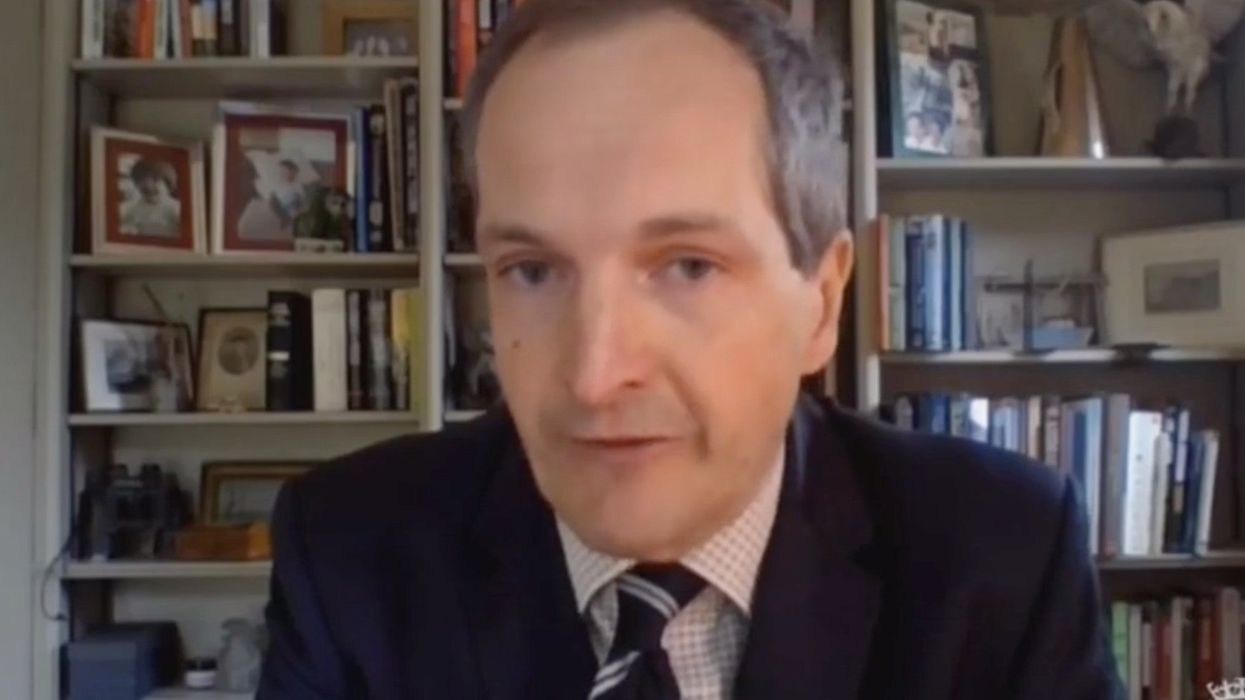News
Greg Evans
Jul 28, 2020
The Tory hereditary peer and health minister Lord Bethell has been accused of 'blaming the poor' for a higher number of coronavirus cases in more disadvantaged communities.
During a coronavirus update in the House of Lords, which is still in session for one more week before it breaks up for summer Lord James Bethell replied to statistic read out by Labour's Lord Reid which compared the number of coronavirus related deaths in deprived areas to wealthy areas.
Figures from the Office of National Statistics show that the mortality rate in poorer areas of England was at 139.6 deaths per 100,000, whereas in richer areas it was 63.4 deaths per 100,000 population between the months of March and June.
Reid demanded to know from the government what was being done to combat this inequality as in June it was discovered that you were 137.5 per cent more likely to die from Covid-19 if you came from a poor area.
In reply to Lord Reid's reading of statistics, Lord Bethell said that the subject was "extremely sensitive" and that the high number of cases was down to "behavioural reasons." Speaking from a video link, he said:
The noble Lord touches on a subject that is extremely sensitive – it makes me feel emotional to think about it – but he is entirely right that those who are least advantaged in society are hardest hit by this disease and lots of other diseases. There are behavioural reasons for this: the decisions that people make about social distancing and their own health. There are also environmental reasons: the living conditions and the places in which they live.
Neither of these detract from the fact that this is a very sad and upsetting truth. However, we are extremely conscious of the challenge, as we are of all health inequalities. The particular lever that we are focused on is trying to get our message out to hard-to-reach communities, who may not have heard the important messages on hygiene, social distancing and isolation.
We have in place a programme of marketing in order to reach these communities to communicate these important messages.
During his response, Bethell was reportedly heckled by Labour's shadow health minister Baroness Thornton, who said "So, you’re blaming the poor, then?" as reported by the Huffington Post.
Thornton's remarks were not captured on television nor were they documented in Hansard, hence there being no direct response from Bethell.
The minister is part of Matt Hancock's team that has tasked with combatting coronavirus and getting safety messages to so-called 'hard to reach communities.'
In a statement given to Huffington Post a Tory source defended Bethell's comments.
James feels passionately about tackling health inequalities and was making the important and profound point that a whole variety of factors contribute to health outcomes, including environment, living conditions and geography.
He hates the fact that those who are the most disadvantaged in society are often the hardest hit by coronavirus and other diseases - and as he set out at length, is determined to do more to ensure we are reaching hard to reach communities with health messaging and support to try and tackle that injustice.
Making sure our public health messaging reaches people from all backgrounds is a vital part of our fight against coronavirus. James has been driving those efforts inside DHSC, and it’s disappointing that Labour are taking words out of context and trying to play politics with such an important issue.
Concerns have been raised within NHS Test and Trace that some of the most vulnerable people that are at risk of being exposed to Covid-19 do not speak English as their first language, which has contributed to a lack of cooperation when it comes to measures such as social distancing.
Leicester was the first area of the UK to go under a local lockdown after it saw a rise in cases, while other locations such as Luton, Blackburn and Merthyr Tydfil in Wales have seen a surge in infection rates.
Top 100
The Conversation (0)














